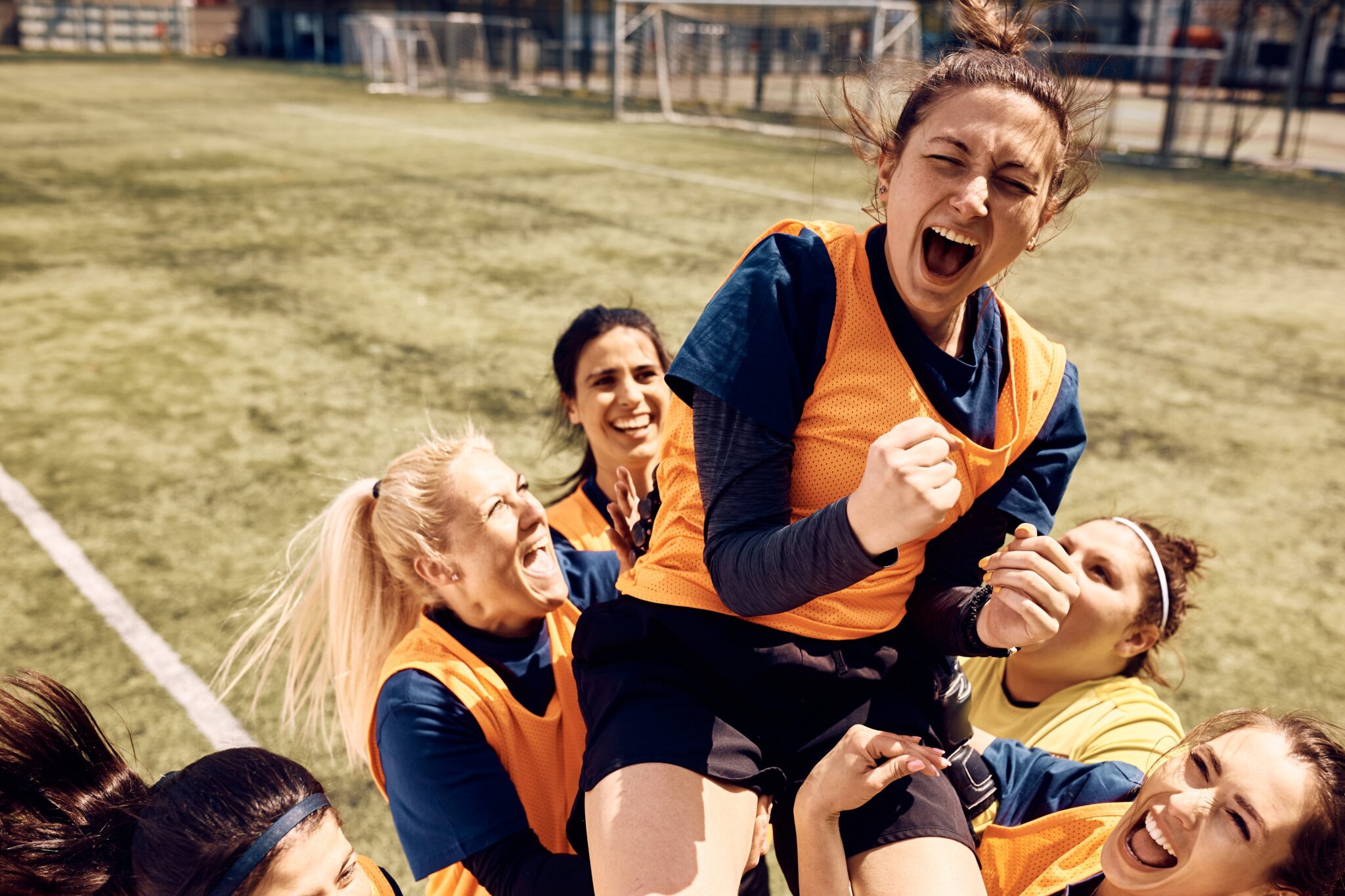Paris 2024: The First Olympic games with Gender Parity
Published: October 30, 2024
Blog
As the Olympics and Paralympics approach, I am excited we will soon witness amazing events full of spectacle, international comradery and impressive human achievement.
This Olympics will be even more than that. Paris 2024 is widely reported to be the first Olympic games with full gender parity on the field of play. Sport is a powerful setting for driving progress and demonstrating leadership on gender equity. Our region has fabulous examples of initiatives that increase the participation of women and girls in sport and sports leadership, and that embed cultures of equality and respect both on and off the field.
As we celebrate the achievement of 50:50 parity in the upcoming Olympic Games, let’s look just a little closer at how far we have come and consider how much is yet to be achieved.
A low bar
The first modern Olympic Games were held in Athens in 1896. At that time, organiser Pierre de Coubertin argued that an Olympics with women would be “impractical, uninteresting, unaesthetic and indecent.” He believed that the games were for “the solemn and periodic exaltation of male athleticism” with “female applause as a reward.”2
The next games (Paris, 1900) saw women compete in events including tennis, golf and sailing. They totalled just 2.2% of competitors. Paris hosted again in 1924 where 4.5% of competitors where women and they competed in diving, fencing, swimming, tennis and sailing. This slowly grew to 23% in Los Angeles in 1984 and 44% in London in 2012.
Despite more women taking to the sports field, the International Olympic Committee (IOC) remained an all-male committee right up to 1981 and only acknowledged gender equality as a principle in the Olympic Charter in 1996.
As unbelievable as it sounds, a sport as ubiquitous as cycling was not opened to women at the Olympics until 1984. The realisation that this was in within my lifetime came as a bit of a shock to me.
It wasn’t until 2012 that women were allowed to compete in all Olympic sports and 2014 before the IOC committed fully to gender parity at the Games.
Aiming higher
IOC President Thomas Bach said “We are looking forward to Paris 2024, where we will see the results of the enormous efforts made by the Olympic Movement and female trailblazers come to life. This is our contribution to a more gender-equal world.”1 A contribution no doubt: 50:50 on-field parity is a great outcome, but we must be mindful that gender parity is not the same as gender equality.
A US study, the Respect her Game Report, of the 2021 Tokyo Olympics highlights some of the arguably less obvious gender considerations. During that games, women athletes were approximately ten times more likely to be objectified through camera angles, were more frequently portrayed wearing revealing clothing and were seven times more likely to be referred to by commentators using the diminutive term “girl.” 3
In fairness, the IOC efforts do go beyond parity of athlete numbers. It has developed a suite of objectives, guidelines and toolkits to drive equity throughout the games. 4
Organisers have achieved greater gender balance, with 28 out of 32 sports fully gender equal, and a more gender-balanced number of medal events. The Paris 2024 schedule comprises 152 women’s events, 157 men’s events and 20 mixed-gender events.
The IOC is also growing the visibility of women at the Olympic Games. Since Tokyo 2020, teams have been encouraged to have one female and one male athlete jointly carry their flag at the Opening Ceremony. Women’s and men’s sports events are also scheduled more fairly over the duration of the Games, providing broadcasters and journalists with the opportunity to better balance coverage.
For the first time since its inclusion in 1984, the women’s marathon will take place a day after the men’s at the Paris games and will conclude the athletics programme during the Closing Ceremony. This prestigious position has always been reserved for the men’s marathon. For women marathon runners to be showcased this way is a significant demonstration of change.
Opportunities for all
Some commentators though, are concerned that in an effort to achieve parity, some men’s sports have been diminished to make way for women’s events. An example is the 50km race walk where a mixed team relay will replace the individual men’s discipline. This delivers numerical parity by increasing women’s participation, but a true drive towards equity would be better served by adding women’s events without removing men’s opportunities.
Even with parity on the field, women continue to be underrepresented in other roles at the Olympics. The IOC has acknowledged that there is work still to do and they are committed to progressing gender equity in roles such as coaching, support staff and technical official roles.
While it is very positive to see advancement towards parity and commitment to equality at the Olympics, it must be acknowledged that the IOC has opted out of firm decision making in terms of transgender and intersex athletes. Instead, it has provided a non-binding framework as a guide and handed the decision making over to International Federations for individual sports. This has created some confusion and varied experiences for gender diverse athletes and as such, dulls the sparkle of the label of the “gender equal” Games.
The games are close, and I’m excited to see our athletes compete on the world stage. I’ll be thrilled by the ceremony and spectacle, and I’ll celebrate the achievement. I’ll also take the “gender equal games” narrative for what it is, a great demonstration of progress towards parity, but not comprehensive gender equity. I look forward to better and fairer coverage, more women’s events on our screens and more respectful commentary. Mostly, as the games draw close, I look forward to seeing our wonderful, dedicated and talented female competitors excel in their chosen fields.
- https://olympics.com/ioc/news/genderequalolympics-celebrating-full-gender-parity-on-the-field-of-play-at-paris-2024
- https://www.aljazeera.com/news/2021/8/8/sexism-is-still-a-problem-at-the-first-gender-equal-olympics
- https://therepproject.org/wp-content/uploads/2021/08/Respect-Her-Game-Report.pdf
- https://olympics.com/ioc/gender-equality
